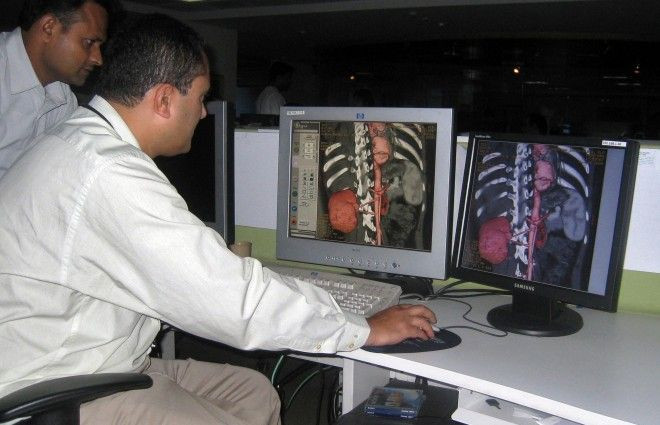Coronavirus Aftermath: How Industries And Economy Will Be Changed After The Crisis

KEY POINTS
- Telemedicine is expected to go mainstream despite complexities of setup, billing and regulations
- E-commerce likely will increase and only those companies that can adapt to incorporate digital business will survive
- Companies are likely to focus on disaster planning
Past national disasters have brought major changes to the American lifestyle: The 9/11 terrorist attacks made the U.S. more security conscious; the 2008 financial crisis changed spending habits and the real estate industry. Now the COVID-19 is forcing changes in everything from work and education to shopping and entertainment.
Experts Tuesday predicted permanent changes resulting from the infection though they stop short of Isaac Asimov’s “Naked Sun,” which envisioned a society where individuals experienced solitary existences with just a robot and a computer for company.
“While government is doing all that it can to address the economic impact and lessen the time to recovery many Americans are now experiencing a war time footing for the first time will make permanent changes to how they save, how they spend and how they prepare themselves for the future,” Paul Magel, president of business applications at CGS Communications, told IBTimes. “Few saw this epidemic coming or its impact to their savings, their personal freedom and the true global nature of our economy.”
Work-from-home is expected to go more mainstream now that millions more Americans are being forced to telecommute.
“The cost savings from commuting to the office or traveling to a client location can be reduced without lowering the quality. This will have both companies and individuals much more open to the WFH options to reduce costs for real estate and office expenses, in addition to the commute,” Magel said.
David Waslen, CEO and co-founder of HedgeTrade, a blockchain-powered financial application for social trading, said the pandemic will serve as a catalyst for reevaluating systems for weaknesses within the global economy.
“The effects of this virus have brought to light the fragility of our current economic model. It’s also forced us to rethink potential improvements in the way we handle disease outbreaks,” he said.
A positive impact could be a rethink of healthcare, both how medicine is practiced – telemedicine is expected to become more routine -- and covered by insurers.
“The healthcare capacity of nearly every nation in the world is and will be severely tested in an acute window. Look for streamlines, inventions, faster triage, and more technology to speed up the pace of healthcare and increase capacity,” said Kelly Crane, president and chief investment officer at Napa Valley Wealth Management.
“We predict an increased use of telemedicine going forward, even after COVID-19. Providers and patients will become accustomed to this mode of care, from a convenience and practical perspective in addition to the benefit of decreasing exposure. Payers and regulators will need to catch up,” said Susanna Hathaway Murphy and Douglas Grimm of law firm Arent Fox LLP.
Simon Bloz, co-founder and co-CEO at patient information platform Klara, predicted telemedicine will go from a “nice-to-have” for medical practices to a necessity despite the complexities involved in setting it up and confusion around reimbursements, billing and state regulation.
“Even now during a pandemic, health insurance companies are routinely denying payment for patient care so that patients must appeal to get covered, knowing that in many cases a patient will not appeal as they recover from an illness. ... Hospital stays are often extended or patients sent home early because of the wait for insurance companies to accept claims. … It is one long term practice that healthcare can probably do without,” Waslen said.
When it comes to retailing, brick-and-mortar operations are going to need to accelerate changes.
“From an e-commerce perspective, we anticipate that the growth of e-commerce in relation to physical stores will accelerate further as some consumers who were introduced to online ordering or used it more frequently during the coronavirus crisis are likely to adopt similar ordering behavior going forward,” said Carlos Castelán, managing director of retail consultant, The Navio Group.
“Hybrid models such as buy online pickup in-store or curbside pickup will continue to grow in usage as well so retailers that have invested in those fulfillment models will see further growth.”
“The fact remains brick-and-mortars were struggling prior and those that adopted digital commerce were surviving and thriving,” agreed Alex Atzberger, CEO of Episerver. “Twenty-percent of global consumers already shopped online at least once a week, and retailers that can use their physical locations to fulfill online orders quickly can regain some momentum.”
“Today's environment will accelerate the move to a digital consumer experience,” said Sanjay Gupta, vice president of corporate development and product management at identity verification provider Mitek. “Brick-and-mortar companies that have not yet entered the digital era now must rethink their overall strategy to survive and thrive. Right now, people have to think out of the box to continue living – in a different way. Patrick Hardy, founder of Disaster Hawk, said he expects businesses to begin taking disaster planning seriously.”
“I believe that companies now are starting to finally wake up to the fact that disaster plans, training and emergency response need to be an essential part of doing business, much like insurance, accounting, and safety are today. Disasters like COVID-19 are serious disruptive events, and employers and employees are realizing that it can destroy everything they have built,” he said.
© Copyright IBTimes 2025. All rights reserved.






















